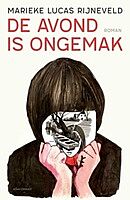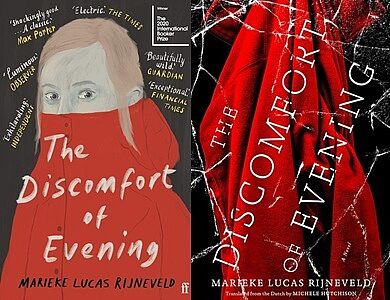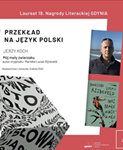Transnational Reception of The Discomfort of Evening
Lucas Rijneveld’s debut novel, The Discomfort of Evening (De avond is ongemak), has captured the attention of readers and critics around the world. Its journey from the Dutch literary landscape to international acclaim is not just a story of translation and publication, but also the story of how it managed to travel and of one of the many ways in which it was received in the Netherlands and around the globe. This essay explores the transnational reception of Rijneveld's debut novel focusing on the content and style of the novel and paratextual elements.
Born in 1991 in the Dutch countryside, Lucas Rijneveld grew up in a strict Reformed family and experienced the traumatic loss of a brother at a young age – an event that would deeply inform their literary work. Rijneveld’s writing, steeped in intense imagery and bodily experience, often explores themes of grief, sexuality, religious restriction, and psychological fragmentation. Their debut poetry collection Kalfsvlies (2015) won the C. Buddingh’ Prize and was followed by De avond is ongemak in 2018. The novel’s rawness and originality quickly made Rijneveld a household name in the Netherlands. Despite initial acclaim, it did not receive major Dutch literary awards—although it later won the ANV Debutantenprijs in 2019.
National Reception

In the Netherlands, De avond is ongemak struck a chord with its hallucinatory prose and its unapologetically raw subject matter. The story centers on Jas, a young girl who stops taking off her coat after the accidental death of her brother, blaming herself for praying that God would take her brother instead of her pet rabbit. The narrative spirals through themes of decay, obsession, bodily fluids, religious trauma, and adolescent confusion—all told through a child’s fragmented consciousness.
Critics praised the novel's poetic style, emotional intensity, and visual imagination. Kees ’t Hart in De Groene Amsterdammer described it as “breathtakingly close,” while Trouw called it “overwhelming.” Yet some critics voiced concerns about the excess of metaphors and the chaos of imagery. Gerbrand Bakker bluntly criticized the novel as “not good,” suggesting its popularity outstripped its literary merit.
International Journey and the Booker Prize

British (Faber & Faber) and American (Graywolf Press) cover of "The Discomfort of Evening"
Initially supported by a Dutch writer’s grant, De avond is ongemak was highlighted at the London Book Fair as one of the top ten Dutch books. With the assistance of Barbara den Ouden, from the Dutch Foundation for Literature, translation rights were secured in Germany (Suhrkamp), Italy (Nutrimenti), Spain (Temas de Hoy), and later in France, the UK, the US, and many more.
The English translation, The Discomfort of Evening, by Michele Hutchison, was published by Faber & Faber (UK) and Graywolf Press (US) in 2020. That same year, Rijneveld and Hutchison won the prestigious International Booker Prize, making Rijneveld the youngest and the first Dutch author to receive the award. The recognition brought global attention to the book, leading to translations in over twenty languages. In 2025 this number is already higher: 42 languages, already completed or rights sold, which makes it the most translated Dutch book of all times.
Reception in English-speaking countries and other European countries
Across the globe, the novel received a mix of fascination, discomfort, and admiration. Reviewers frequently noted the poetic grotesquery of the prose, the complexity of the narrative voice, and the visceral emotional terrain it traverses. British critics acknowledged the novel’s resonance with stereotypical images of Dutch life (cows, ice-skating, rural isolation) while praising its psychological depth. The Guardian remarked on its “timeless charge,” and The New Statesman highlighted its haunting loneliness. However, the novel was not universally embraced; The Times questioned whether British readers could connect with its brutal tone. Interestingly, the English edition omitted a controversial “Hitler joke”, most probably after an advice of the sensitivity committee. In the US, The New York Times described the novel as “teeming with all the filth of life,” both terrifying and comforting in its imagination. Indian outlet Tangerine appreciated the raw examination of childhood trauma. American critics emphasized the novel’s shock value, while also acknowledging its stylistic brilliance.

Spanish and German cover
German critics lauded Rijneveld as “the greatest hope of Dutch literature,” celebrating their ability to describe the indescribable. The Spanish reception centered around fascination with Rijneveld’s persona and the autobiographical aspects of the novel. The book was hailed as a revelation in European literature, with critics noting its originality and emotional power. Polish critics appreciated the novel’s rich language, philosophical depth, and exploration of taboo.
In the Czech Republic and Slovakia, reception was similarly positive, with reviewers noting the aesthetic qualities of the text. Hungarian and Romanian critics highlighted the novel’s traumatic elements and poetic prose, comparing it to a modern danse macabre.
Paratextual elements & the increasing visibility of the translator

Hungarian and Romanian cover
Understanding the transnational reception of a literary work involves more than reading reviews. It also requires a look into what Gérard Genette calls paratexts – all the elements that surround the text, including titles, covers and introductions. These contextual elements guide the reader's interpretation and shape the book's meaning in new cultural environments. A lot of the countries kept the original cover and borrowed quotes and cover texts, but others varied and made personal choices to evoke the atmosphere of the novel, moving from “discomfort” to “pain” or “unrest.”. Cover designs in Central-Europe often mirrored the original edition but added local touches, like hand-written prayers or stereotypical rural imagery.

The inclusion of the translator's name on the cover and the recognition of the quality of the translation are marks of the growing visibility of the translator. The German translation by Helga van Beuningen received the 2021 Straelener Übersetzerpreis for its “fearless precision.” Reviewers commended the translation by Polish translator Jerzy Koch as even stronger than the English version, noting his inventive use of neologisms. Jerzy Koch went on to translate Rijneveld’s second novel (Mijn lieve gunsteling, My Heavenly Favourite) and won the Gdynia Literary Prize in Translation. The Czech and Slovak translators were often praised by name, seen as co-creators rather than invisible intermediaries.
Conclusion: A Truly Transnational Work
The reception of The Discomfort of Evening reveals both shared aesthetic appreciation and local cultural adaptations. Despite regional differences, several patterns emerge. Critics admired the novel’s poetic density, metaphorical richness, and narrative daring. Translators were frequently acknowledged, and in some cases, praised for enhancing or refining the novel.
Covers, titles, and blurbs shifted to reflect local sensibilities, though many editions followed the original visual template. The ethical tension in the novel’s content (violence, sexuality, religion) also varied in its impact across cultures. Ultimately, The Discomfort of Evening has transcended its Dutch roots. It resonates in a global geography of literature – one that recognizes trauma, grief, and identity as a shared human experiences.
(Alexa Stoicescu)
